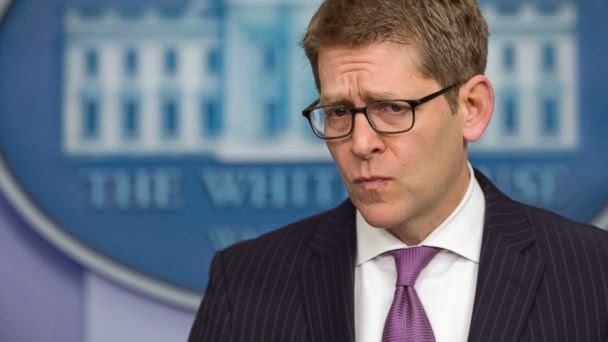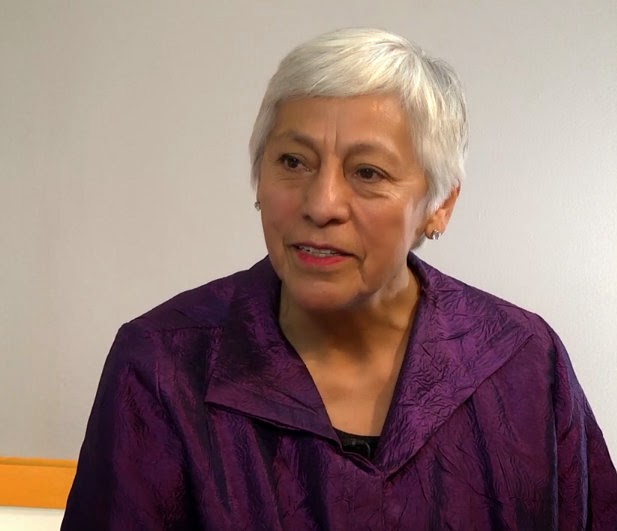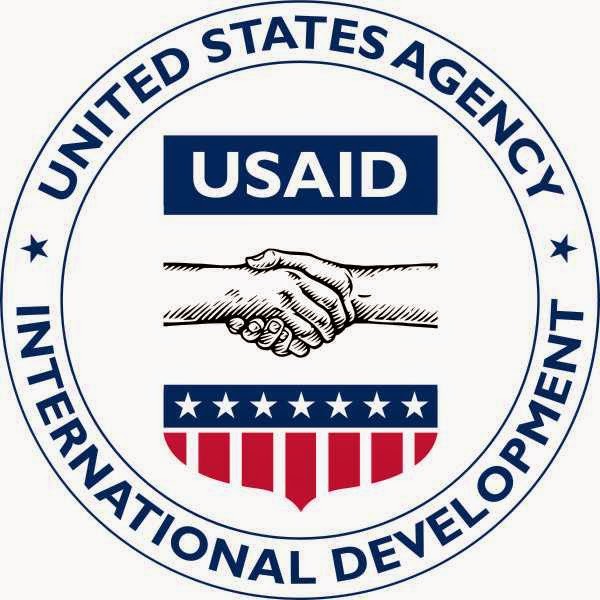alongthemalecon.blogspot.com
 ZunZuneo's Facebook page had recorded 293 "likes" when I checked it yesterday.
ZunZuneo's Facebook page had recorded 293 "likes" when I checked it yesterday.
Since then, that number has soared, despite the fact that the so-called "Cuban Twitter" is now defunct.
To be sure, ZunZuneo has plenty of supporters. Boosting the free flow of
information in Cuba is a noble goal. I'd never argue with that.
What some people are debating is how the U.S. Agency for International
Development managed the project and whether the U.S. government should
interfere with Cuba's internal affairs.
USAID hired a private, for-profit company called Creative Associates
International to oversee ZunZuneo, according to an April 3 report by
the Associated Press. The story said:
The money that Creative Associates spent on ZunZuneo was publicly
earmarked for an unspecified project in Pakistan, government data show.
A Denver company called Mobile Accord assisted Creative Associates. On
Thursday, I found Mobile Accord's contracts for work in Pakistan and
jumped to the conclusion that they were connected to ZunZuneo. Earlier
today, I suggested that federal officials might have written "any old
BS" in contract records to hide the Cuba connection. I was wrong. A
Mobile Accord spokesman told me today that there were two separate
contracts. He said:
We can confirm that the Pakistan and Cuba projects were entirely separate.
Only Mobile Accord's Pakistan agreement appears in the Federal Procurement Data System, FPDS. If anyone has details on the contract related to Cuba, please let me know and I'll post the information here.
According to the FPDS website, Mobile Accord's contracts with the State Department include:
- A Sept. 18, 2009, agreement for "Short Message Service support to be provided to displaced people in the northwest frontier of Pakistan." Amount: $969,000.
- A Sept. 8, 2011, agreement
described as - and I'm not making this up - "New possibility of doing
polling by phone very rapidly." The State Department's embassy in
Kinshasa in the Democratic Republic of the Congo is listed as the
contracting office. Amount: $6,500.
- A July 8, 2010, agreement
to provide "TAS::19 0113 000::TAS" in Pakistan. I don't know what TAS
that means. I'd like to think it's something sexy like "tactical air
support," but it's probably "task objective statement" or some stunning example of bureaucratese. Amount: $720,000.
| Screenshot from Mobile Accord website |
| Here's where Mobile Accord said it operated |
As for Creative Associates,
I've been wondering for several years what exactly the Washington,
D.C., company does in Cuba. Creative received a $6.5 million contract to
carry out a Cuba democracy project not long after hiring Caleb McCarry,
who was the Cuba Transition Coordinator under former President George
W. Bush.
| Creative CEO Charito Kruvant. Credit: Vimeo |
On Oct. 10, 2011, I sent three Freedom of Information requests to the U.S. Agency for International Development try to learn more about Creative's work in Cuba.
More than 900 days later, USAID still hasn't responded, other than to acknowledge that it received my requests.
Nor has USAID answered 16 FOIAs I sent in 2011 asking for information
about work that the Pan American Development Foundation has carried out
in Cuba. (See Cuba Money Project for details on the FOIAs).
The agency hasn't provided any information about DAI, either. That's the
company that sent American Alan Gross to Cuba. The public likely
wouldn't know details about that case if not for Gross's jailing in Cuba
and subsequent lawsuit against DAI. (See the "Secret Files of Alan Gross," "Secrecy, politics at heart of Cuba project," and "Alan Gross and his descent into hell").
USAID paid Creative Associates $11 million for its Cuba work. The company operated from a secret base in Costa Rica. (See "$11 million for clandestine work in Costa Rica?").
Creative was supposed to get a total of $15 million, but the money dried up after the U.S. government shut down the operation.
American officials have never acknowledged the operation or explained what happened.
 |
| Jay Carney. Credit: Associated Press |
I guess they're just being "discreet." That's how White House spokesman Jay Carney described ZunZuneo. He said:
This was an effort, one of a variety of efforts that the United States
engages in, as part of its development mission, to promote the flow of
free information, to promote the engagement by citizens of countries,
especially societies that are non-permissive, because we believe that is
part of the essential right of every individual on Earth.
Marie Harf, the deputy spokeswoman at the State Department, told the New York Times:
There was nothing classified or covert about this program. Discreet does
not equal covert. Having worked for almost six years at the CIA and now
here, I know the difference.
Harf told the Times that anyone calling ZunZuneo a covert program did not understand covert programs.
I don't understand covert programs. I have learned to read the dictionary. Merriam-Webster defines discreet as:
- having or showing discernment or good judgment in conduct and especially in speech
- unpretentious, modest
- unobtrusive, unnoticeable
Examples:
- "He was very discreet, only saying what was necessary."
- "With a discreet gesture, she signaled to her husband that she was ready to leave the party."
The dictionary defines covert as:
- not openly shown, engaged in, or avowed : veiled a covert alliance.
Examples:
- "He has taken part in a number of covert military operations."
- "Spy agencies taking covert action."
Phil Peters, a former State Department official and creator of the Cuban
Triangle blog, described ZunZuneo as "covert action" under U.S. law.
He wrote:
The idea was to build the subscriber base by offering interesting news
content, gradually to introduce political content, and eventually to try
to mobilize subscribers to political activism so as to “renegotiate the
balance of power between the state and society.”
These were, in other words, “activities of the United States Government
to influence political, economic, or military conditions abroad, where
it is intended that the role of the United States government will not be
apparent or acknowledged publicly.” That is “covert action” as defined
in U.S. law (National Security Act of 1947).
Now I am not against covert action in principle, nor are most
governments regardless of what they say. But it’s a little rich for
USAID to be engaging in covert action and refusing to admit it, much
less participating in the controls and oversight mechanisms that
Congress and the Executive have for that purpose.
USAID isn’t very competent at acting like a junior CIA and running
covert operations in Cuba. Its operations tend to be found out.
Indeed, the Cuban intelligence service tends to see them coming, as
shown in this 2011 video.
But more important than that is USAID’s political malfeasance.
Just as Alan Gross has cast suspicion on Americans who assist religious
institutions in Cuba on their own, unpaid by U.S. government contracts,
this program casts suspicion on people who have no U.S. government
connection and try to help Cubans gain access to information. Cuban
citizens, not to mention the Cuban intelligence service, will reasonably
suspect that there’s a hidden U.S. government hand in an offer of
information or access to technology – or that the offer is really bait
for a future attempt to bring them into a political program.
USAID’s program was disrespectful to Cubans. It is patronizing of USAID
to refer to Cuban citizens as “partners” when they don’t know that they
are dealing with the U.S. government. Our government should not be
operating under false pretenses with Cubans, as it did through Alan
Gross and now through ZunZuneo. And the U.S. government has no business
luring Cuban citizens into a social media operation to gather
information on their political views without their consent. It’s hard
for the U.S. government to say that Cubans need to find their own way
and “determine their own future” when it is trying not to assist, but
actually to generate political activity.
USAID's Matt Herrick said in a statement:
It is longstanding U.S. policy to help Cubans increase their ability to
communicate with each other and with the outside world. Working with
resources provided by Congress for exactly this purpose, USAID is proud
of its work in Cuba to provide basic humanitarian assistance, promote
human rights and universal freedoms, and to help information flow more
freely to the Cuban people. All of our work in Cuba, including this
project, was reviewed in detail in 2013 by the Government Accountability
Office and found to be consistent with U.S. law and appropriate under
oversight controls.
It is also no secret that in hostile environments, governments take
steps to protect the partners we are working with on the ground. The
purpose of the Zunzuneo project was to create a platform for Cubans to
speak freely among themselves, period. At the initial stages, the
grantee sent tech news, sports scores, weather, and trivia to build
interest and engage Cubans. After that, Cubans were able to talk among
themselves, and we are proud of that. USAID is a development agency and
we work all over the world to help people exercise their universal
rights and freedoms.
Mobile Accord said:
We’re a mobile services company who facilitates open communications to
power social good. We provided a platform for Cuban people to connect
with one another. The program ran its course and was defunded, but it
was well-loved by users and we’re very proud of the network we built for
Cubans to share information about their daily lives.
The Cuban government today called on an end to "illegal and covert actions against Cuba."
The information contained in the article
published by the U.S. news agency AP confirms the repeated
denunciations made by the government of Cuba. It is once again
demonstrated that the government of the United States has not given up
on its subversive plans against Cuba, which seek to create destabilizing
situations in the country in order to provoke changes in our political
order, to which the government of the United States continues to
dedicate budgets of millions of dollars every year.
The government of the United States must respect International Law and
the purposes and principles of the Charter of the United Nations and it
must, therefore, cease on its illegal and covert actions against Cuba,
which are rejected by the Cuban people and the international public
opinion.
ZunZuneo is not the only "discreet" project that the U.S. government has launched in Cuba. Others are likely underway.
The Broadcasting Board of Governors, or BBG, has spent millions of dollars to develop a messaging network in Cuba.
Contract records show that the BBG has paid Washington Software Inc., of Germantown, Md., more than $3.2 million since 2011. Payments have gone for:
- Expanding Internet proxy servers
- Developing a Short Message Service, or SMS, social network
- Preventing Cuban government jamming of its electronic messages
- Sending text messages to Cuba via SMS
- Programming computers
- Designing and operating an SMS system
- Sending email blasts
(For more information, see "Agency takes new strategy toward Cuba," "Text-messaging campaign targets Cuba," and "Firm also has e-mail blasting deal").
In 2013, the BBG paid $60,000 to Mobile Accord, the Denver company that helped run ZunZuneo.
That included $40,000 for a mobile phone survey and $20,000 for "OPR/R for additional projects," contract records show.
OPR could mean "operational project requirements," according to the Acronym Finder.
The BBG's contracts don't say whether Mobile Accord's contracts are related to Cuba.

In 2012, USAID gave the New America Foundation a $4.3 million contract in 2012. (See "New America Foundation gets Cuba grant"). The Open Technology Institute is part of the foundation. It created an open source tool called Commotion, which can be used to create a mesh network.
Mesh networks were originally designed for military applications and
allows activists to operate independent of the central authorities’
communication infrastructure. (For more on that, see "Cuba likely target for mesh network").
The battle for Cuba is far from over.
 ZunZuneo's Facebook page had recorded 293 "likes" when I checked it yesterday.
ZunZuneo's Facebook page had recorded 293 "likes" when I checked it yesterday.











No hay comentarios:
Publicar un comentario